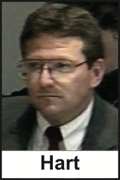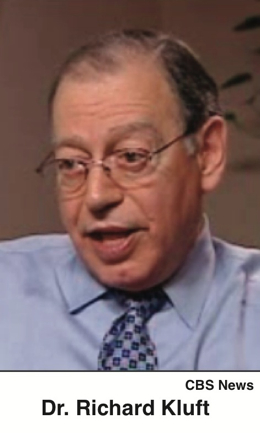Rascals case in brief
In the beginning, in 1989, more than 90 children at the Little Rascals Day Care Center in Edenton, North Carolina, accused a total of 20 adults with 429 instances of sexual abuse over a three-year period. It may have all begun with one parent’s complaint about punishment given her child.
Among the alleged perpetrators: the sheriff and mayor. But prosecutors would charge only Robin Byrum, Darlene Harris, Elizabeth “Betsy” Kelly, Robert “Bob” Kelly, Willard Scott Privott, Shelley Stone and Dawn Wilson – the Edenton 7.
Along with sodomy and beatings, allegations included a baby killed with a handgun, a child being hung upside down from a tree and being set on fire and countless other fantastic incidents involving spaceships, hot air balloons, pirate ships and trained sharks.
By the time prosecutors dropped the last charges in 1997, Little Rascals had become North Carolina’s longest and most costly criminal trial. Prosecutors kept defendants jailed in hopes at least one would turn against their supposed co-conspirators. Remarkably, none did. Another shameful record: Five defendants had to wait longer to face their accusers in court than anyone else in North Carolina history.
Between 1991 and 1997, Ofra Bikel produced three extraordinary episodes on the Little Rascals case for the PBS series “Frontline.” Although “Innocence Lost” did not deter prosecutors, it exposed their tactics and fostered nationwide skepticism and dismay.
With each passing year, the absurdity of the Little Rascals charges has become more obvious. But no admission of error has ever come from prosecutors, police, interviewers or parents. This site is devoted to the issues raised by this case.
On Facebook
Click for earlier Facebook posts archived on this site
Click to go to
Today’s random selection from the Little Rascals Day Care archives….
Click for earlier Facebook posts archived on this site
Click to go to
Today’s random selection from the Little Rascals Day Care archives….
How Bill Hart got better at playing dirty
Dec. 2, 2011
 “Videotaped interviews made during the early cases (alleging day care ritual sex abuse) show that when children were allowed to speak freely, either they had nothing to say about abuse or they denied it ever happened to them.
“Videotaped interviews made during the early cases (alleging day care ritual sex abuse) show that when children were allowed to speak freely, either they had nothing to say about abuse or they denied it ever happened to them.
“Once it became obvious that these records would prevent guilty verdicts, prosecutors began advising investigators not to keep tapes or detailed notes of their work.”
– From “Satan’s Silence: Ritual Abuse and the Making of a Modern American Witch Hunt” by Debbie Nathan and Michael Snedeker (1995)
Perhaps the most significant difference in the two largest abuse trials was that McMartin defense attorneys were able to expose to jurors the prosecution therapists’ manipulative interview techniques, while Little Rascals attorneys were stymied by the premeditated unavailability of original documentation.
“After Bob Kelly’s indictment,” according to an article in the ABA Journal, “Bill Hart, a North Carolina deputy attorney general assigned to the case, traveled to Los Angeles to consult with McMartin prosecutors.
“He learned that McMartin jurors had criticized videotapes of therapist Kee McFarlane’s interviews with the children. She asked leading questions and rebuked children who did not tell of abuse….”
Hart could have brought back to North Carolina the lesson that interviewers shouldn’t “(ask) leading questions and (rebuke) children who did not tell of abuse.” Instead, he brought back the lesson that interviewers should leave no evidence of having used exactly those fraudulent techniques.
The toxic legacy of phony scholarship
July 17, 2013
“Some reports of day care abuse suggest threats and verbal coercion to be particularly severe. (David) Finkelhor et al. (1988), for example, reported that in day care abuse, perpetrators threatened harm to the child in 41% of cases, harm to the child’s family in 22% of cases and threatened to kill a child’s pet in 12%. (Susan J.) Kelley, Brant and Waterman (1993) added that threats in these cases were most likely to involve harm to the victim or their family. (Kathleen Coulborn) Faller (1990) notes that in addition to death threats against the victim or their family, a further frequent threat was to implicate the victim.”
– From “Women Who Sexually Abuse Children” by Hannah Ford (2006)
So much so wrong in so few words!
Finkelhor, Kelley and Faller – among their era’s most prolific researchers in child sexual abuse – have never retracted their false claims. And despite epochal advances in social science, author Ford in 2006 cites their work without qualification, thus extending its influence to another generation.
Notable also: As does fellow fantasist Susan J. Kelley, Finkelhor uses statistics to lend authority to his alternate universe. How many “perpetrators… threatened to kill a child’s pet”? Not 10 percent, not 11 percent, but “12 percent” – who could doubt such exactitude?
C’mon, Dr. Kluft, aren’t you proud of your role?
 Feb. 24, 2014
Feb. 24, 2014
Why would Dr. Richard Kluft “take exception to” and “(raise) the issue of legal liability” over “When Psychiatry Battled the Devil”?
It’s not as if the record of Kluft’s involvement in promoting “satanic ritual abuse” and “multiple personality disorder” could be any longer or better-documented.
And it’s certainly not as if he has ever acknowledged the error of his ways.
In this exchange from a 2009 interview on CBS “Sunday Morning” he confidently posits a nationwide epidemic of undiagnosed cases of MPD:
Tracy Smith: So do you think that there are, what, thousands of people walking around out there with MPD who don`t even know it?
Kluft: Oh, easily.
Smith: Tens of thousands?
Kluft: Easily.
Smith: Hundreds of thousands?
Kluft: Easily.
Smith: Millions?
Kluft: We might be at that level.
Passing off such fantasy as expertise would be knee-slappingly funny, of course, had it not typified the thinking that fostered scores of wrongful prosecutions and ruined thousands of lives….
I remain baffled – what exactly has Richard Kluft done to deserve such obeisance from Psychiatric Times?
‘No innocent person should have to endure….’
March 15, 2013
“To the extent that we may have contributed in any way to the public perception that you might have been involved in this crime, I am deeply sorry.
“No innocent person should have to endure such an extensive trial in the court of public opinion, especially when public officials have not had sufficient evidence to initiate a trial in a court of law.
“We intend in the future to treat you as the victims of this crime, with the sympathy due you because of the horrific loss you suffered.”
– From a letter hand-delivered to John Ramsey, father of JonBenet Ramsey, by Boulder, Colo., District Attorney Mary Lacy in 2008
Just a reminder that, however difficult it is for prosecutors to admit their mistakes, it is not impossible. Other than pride and self-righteousness, what stands in the way of an apology from H. P. Williams, Bill Hart and Nancy Lamb to the Edenton Seven?











0 CommentsComment on Facebook